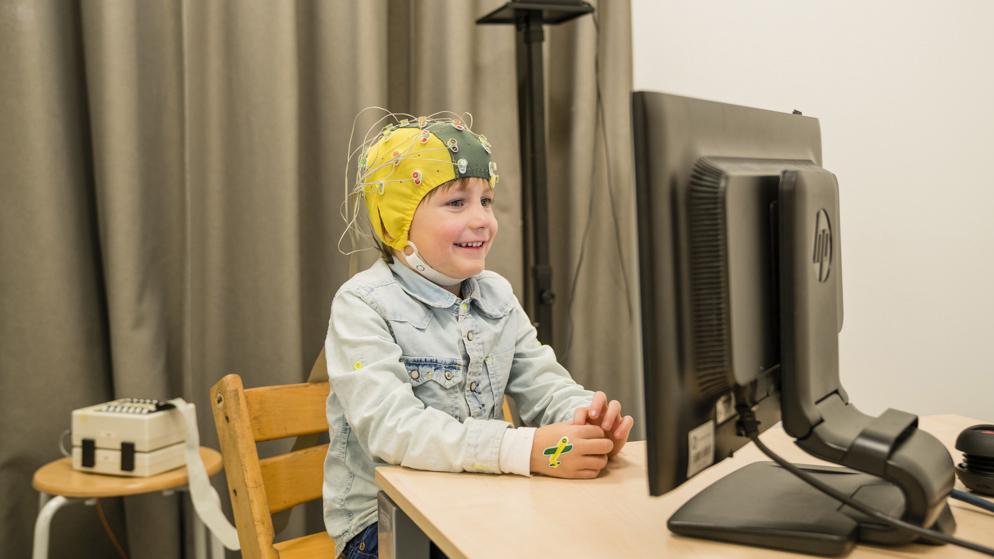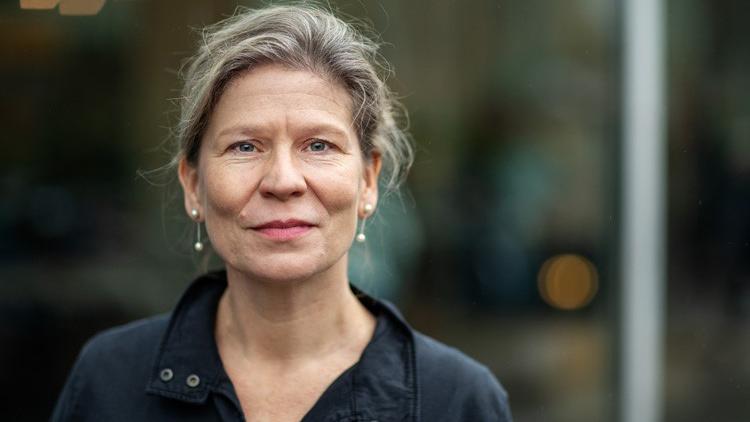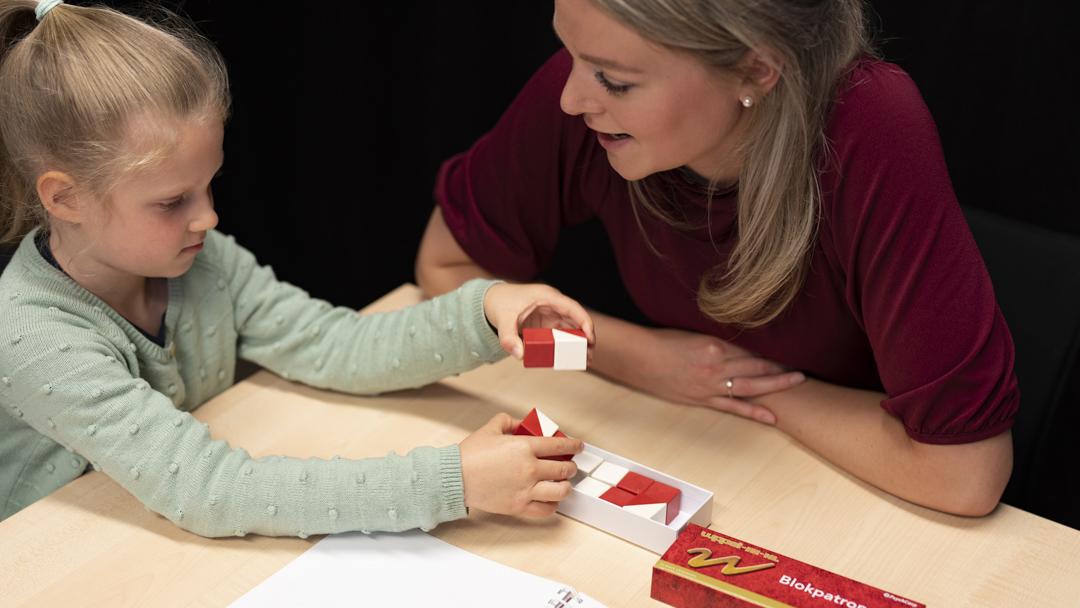After ten years of a sizeable financial backing
Baby research interrupted in Utrecht for lack of funds

For ten years, UU researchers followed the development of around three thousand babies from Utrecht. Even before they were born, their mothers would visit the Children’s Knowledge Centre (which used to be located beneath the Van Unnik building and is now to be found at UMC Utrecht) to undergo 3D ultrasounds, donate DNA material, and fill out questionnaires. The children returned to the Science Park multiple times in their first years of life, where they were observed and studied.
The studies were part of a project called YOUth research (YOU stands for Youth Of Utrecht), which started in 2013, a year after its main founder Chantal Kemner, a Professor in Biological Developmental Psychology, received a Gravity Grand from the Dutch Research Council (NWO) worth 27.6, alongside a consortium of seven universities. That was a first for Utrecht University.
Now, the project is being forced to come to an end because it was impossible to find a structural way to finance such a large-scale endeavour. Although a wealth of data has been gathered, Kemner is disappointed. According to her, this research is unique in the world.
“The research is very broad but, at the same time, it is fine-meshed. The longer you can gather data on children's development, the more you can explain. How is it possible that this teenager is now aggressive or that this adult isn’t doing well? The possibility of looking back is going to be limited now.”

Photo: Ed van Rijswijk
Built a factory
Through YOUth research, Kemner and her colleagues wanted to get a better understanding of how children learn social skills and how to control themselves. To do this, they needed to conduct multiple measurements on the development of the brain and genetic predisposition, to name but two examples. They also looked into the development of the child’s behaviour and the extent to which it was influenced by the parents and environment.
In sum, quite a task. It’s well-known that research on children tends to be highly complex. For this reason, UU's lab needed to create an environment that was as controlled as possible.
“We built a factory, complete with quality control and flow charts, to ensure the measurements went well and remained constant over time. That data were being stored properly and parents were informed appropriately.”
Pioneers
In Kemner's view, the approach has paid off. The website of the project mentions several examples of results obtained thanks to this research, ranging from the development of a baby's brain to children’s language development, as well as the influence of parents when it comes to self-control.
The professor is “extremely proud” of the pioneering role the YOUth study fulfils in presenting the research data in a safe and "fair" way (that is actually an acronym for Findable, Accessible, Interoperable, and Reusable). The research team has been widely praised for this. Alongside the university's IT department, they founded Yoda, a system for storing and sharing research data in whose footsteps many institutions across the country are following.
But Kemner is also aware that the project's scale and costs are also its Achilles heel. She knew from the get-go that it would be hard to find another source of funding to keep the project going after its initial ten years.
Expensive lab
The professor says that funding for research in the field of Social Sciences usually is allocated for PhD candidates. “We also need money for instruments and facilities. A lot of people are involved in the YOUth study, but they aren’t PhD candidates. For us, funding has more to do with desk workers, research assistants, and data experts, which makes it hard to obtain funding from NWO.”
Kemner explains that many long-term research project survive by finding small bits of funding here and there, sometimes through subsidies from the municipality. But they often use standard methods like questionnaires, while YOUth uses "expensive lab facilities and people with incredibly specific expertise. You can’t just put everything on hold and pick up the same pace at a later stage.”
For a long time, Kemner hoped that the importance of the research project would be so evident that they would find alternative sources of cash. She didn't think that was unlikely because YOUth distinguished itself by the accessibility of its data and the high quality of it.
“But the playing field has changed. Ten years ago, researchers could be directly in touch with civil servants, there were more back doors. We don’t work like that anymore — which, of course, is a good thing, too.”
Covid babies
“It’s a shame, and so disappointing that things are so inefficient,” Kemner concludes. “We managed to build a great data set that we could have made even better relatively easily.” Kemner provided a beautiful example in a LinkedIn post earlier this year. YOUth gathered data of hundreds of babies that were born during the Covid-19 pandemic. She would have loved to follow the development of those children.
“Put disrespectfully, Covid was a fantastic social experiment,” she explains. “Children weren’t attending daycare and they didn’t see many other children and adults. How does that affect their development? We were handed that like a gift and now we can’t do anything with it.”
Kemner ended her LinkedIn post by saying: “Time for sustainable governmental funding for science. Government, are you reading this?”
Sustainable funding
It was a “cry from the heart, out of frustration”, she explains. “We keep talking about sustainability. Well, this is exactly what it is about.”
She condemns research funders’ tendency to keep looking for the new kid on the block. “We’re stuck in a mode in which most of the money goes for new things, new people.” Instead, she thinks it would be better to keep investing in what is proven to work. “Let’s not keep reinventing the wheel: a new cohort, a new study. There is so much that could have been done with our research. Our group of participants would have become more and more valuable.”
Since she used to serve as a domain administrator for NWO, she understands the resistance against the so-called “Matheus effect”, when a limited number of prominent researchers gobbles up all the grants. “But if we’re talking about instruments that can be used broadly, you shouldn’t start over again and again, right? You should cherish them.”
“Why can’t NWO tell new applicants that they have a bigger chance of scoring a grant if they can use existing data? That would save a lot of money which could be used to maintain scientific facilities.”

Photo: Ivar Pel
The pitfall of blue eyes
For that same reason, Kemner calls herself a great proponent of collaborations between scientists. She put her own research line on autism on hold ten years ago, for the sake of YOUth.
“If you only encourage those individual research lines, you get fragmentation on all fronts: methodological, theoretical, financial. In my view, science can only progress if we combine our powers.”
As an example, the professor mentions how YOUth's large-scale approach also strengthens research methods and results. “Because we study such large groups, we are also able to discover our own pitfalls. We realised, for instance, that the eye-tracking methods we used to follow children’s eye movements worked better on children with brown eyes than on children with blue eyes. We didn’t know that before, and it’s something you won’t find out in smaller studies.
“Something like that can have great consequences. For instance, researchers could compare Swedish and Italian children and reach the flawed conclusion that Swedish children are more restless. Before you know it, you’re a step further and you make a connection with the fact that Swedish children go to daycare more often.” She concludes: “It doesn’t get you in the papers, but being able to keep an eye on your data does make science stronger.”
Promise
YOUth will come to an end on October 31. Kemner is secretly hoping to find grants to continue smaller subprojects, perhaps the one on Covid babies. However, the Children's Knowledge Centre will close its doors to the babies of the YOUth project.
Aside from the thirty-odd researchers, there are over thirty other employees connected to the project. Most are trying to find jobs elsewhere, or they have already found another position. It’s possible that a few employees will remain involved in the maintenance and issuance of the collected data.
After all, there is a lot of great work to be done in that area, according to Kemner. In her opinion, not enough researchers know that Utrecht has such valuable data, waiting to be mined. “But communicating about that costs money, too. And we don’t have any.”
The rise of artificial intelligence also opens up other possibilities for finding out the full potential of the data set. “It’s so exciting to try and find correlations that we hadn’t even thought about. Around ten researchers are going to work on that now.”
“We can’t let people get the impression that it was all in vain,” Kemner emphasises. “We’re very clear about that when talking to the parents. They are just as disappointed as we are that the project is ending, if only because the children loved participating in it. Their participation was incredibly valuable. We have a treasure chest in our hands, we just saw an even bigger one up for grabs.”